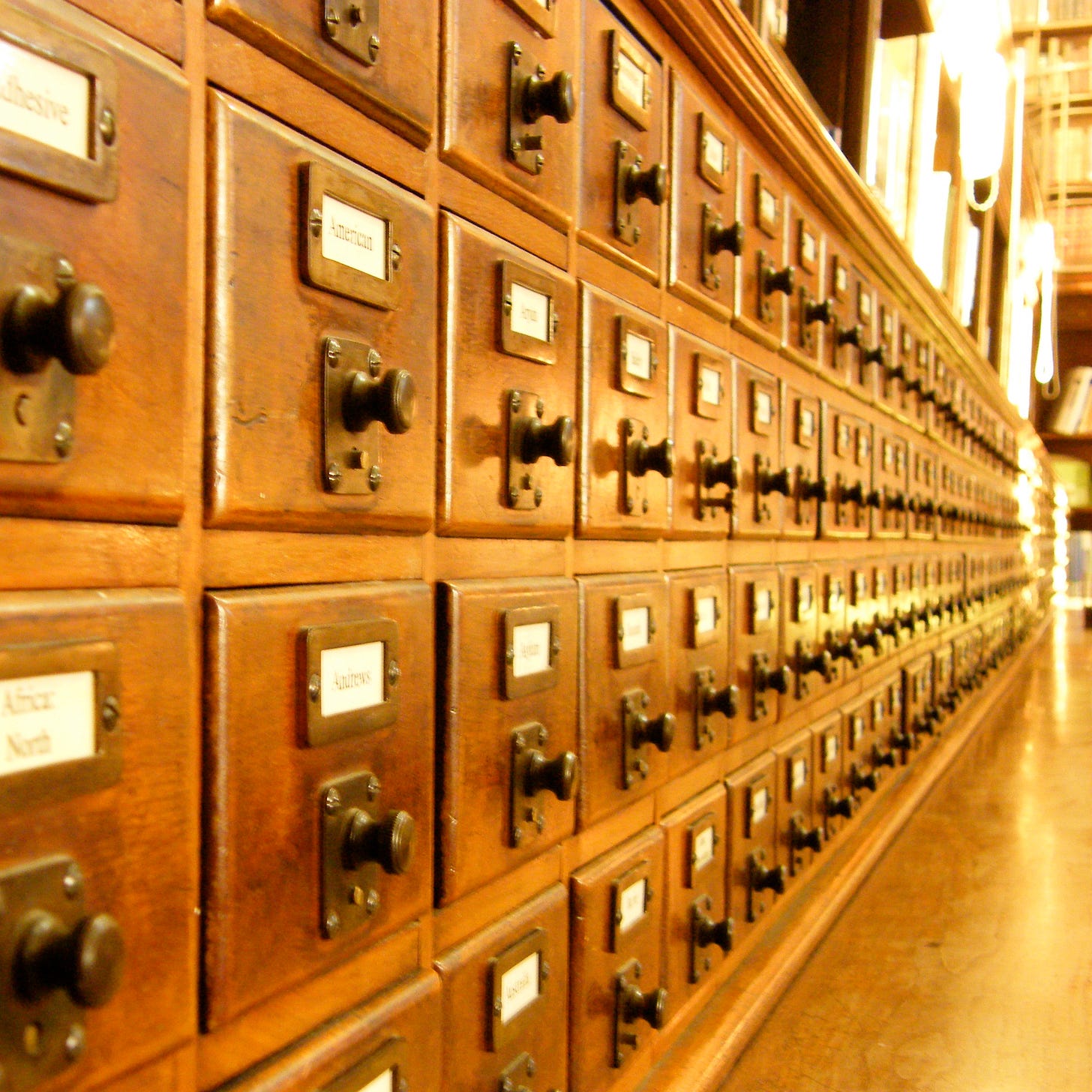
As I discuss Digital Humanities with Scott Weingart this month, I’ve been thinking back to Judith Flanders’ A Place for Everything: The Curious History of Alphabetical Order. It’s a history of how we’ve arranged what we know, especially as information became too big to use without some kind of map.
This was one of the details I was most delighted by:
Until this period in England, memory had a fixed legal span. Up to the reign of Edward I (1272-1307), a witness could legally swear to events that had occurred at any time in the previous hundred years. while anything before that was considered to be beyond the remit of the courts. The form had been for a witness to prove precedent by swearing that he remembered that such-and-such had been done by so-and-so’s father, who had told him that he in turn remembered his own father had done or said the same. In 1275, and again in 1293, statutes reinforced the hundred-year rule by laying down that the coronation of Richard I (September 3, 1193) was the “legal limit of memory.” But as witness documents began to replace memory and its associated sworn testimony, that date of 1193 was never superseded. Now the law relied instead on what might be called artificial memory—paperwork—rather than the testimony of men who recalled events recounted by their fathers and grandfathers.
We’re all facing the unexpected extension of artificial memory, as more and more of our lives are logged and preserved. The shift from memory to recorded history is also the theme of Ted Chiang’s excellent short story “The Truth of Fact, the Truth of Feeling.” The story appears in his second collection, Exhalation, and I strongly recommend it.




A childs'-eye-view from "Linnets and Valerians," by Elizabeth Goudge:
"...It was a glorious house. It had not been spring-cleaned for years. Delicate festoons of spiders’ web swayed beautifully in the draught all the way down the passage, and when they reached the big stone-floored kitchen it was the most wonderful place they had ever seen. Apart from the settle by the hearth, and the black kettle murmuring gently on top of the range, everything was in the wrong place. A basket full of a cat and six kittens was on the draining board, the dishes and plates and two pairs of boots were stacked on the table, the cuckoo clock was in the sink, the sauce pans were on the floor, and the mantlepiece, window sills and dresser were crowded with plants in pots, bast and string, and seed boxes. Some women, but no men or children might have considered this is a dirty kitchen, but they would have been wrong. … Cobwebs were spun between the rafters, but the washing-up had been done before the cat and the cuckoo clock had been put on the draining board and into the sink, and the copper saucepans on the floor were so bright that you could see your face in them..."
> "We’re all facing the unexpected extension of artificial memory, as more and more of our lives are logged and preserved."
Ah, true. Okay, but I want to turn my attention from that [really uncomfortable, but relevant] spectre and look at the things I've consciously allowed to be preseverved. Often I "bump into" an old post I made years ago on a small internet forum (yay to small) ...reflecting on something funny thing my kids did or said when they were tiny, but which I had entirely forgotten!
Speaking of kids and message boards, a friend showed me this xkcd, and I can't stop thinking about it: https://xkcd.com/2363/
I enjoyed the short story. It reminded me of the prologue to the Rule of St. Benedict “Listen, my son, to your master's precepts, and incline the ear of your heart. ... “
It was cool to hear how the young scribe learned to respect his elder. I remember a time when I chose the written account of things over my Abbot, when I was a novice, and now I’m feeling the sting of embarrassment.
Makes you think “Am I obeying the Pope or the historical record?”
Also gives an account as to why Socrates and Our Lord never wrote anything.
Makes you see things in a whole new way.